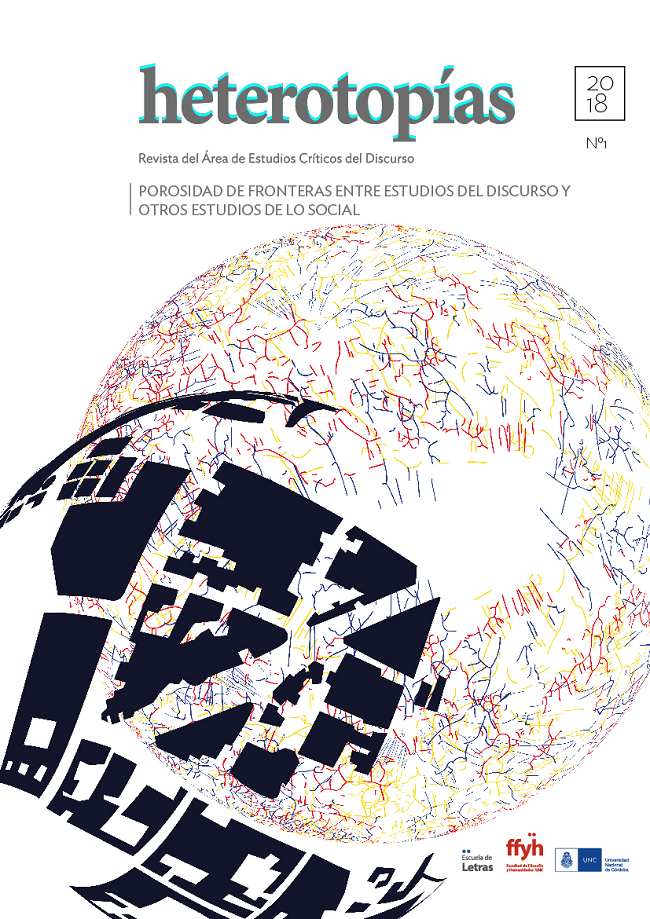El entre mujeres como negación de las formas de interdependencia impuestas por el patriarcado capitalista y colonial. Reflexiones en torno a la violencia y la mediación patriarcal
Main Article Content
Abstract
Domination and exploitation social relationships —inherited from the colony and developed by contemporary capitalism— are a way of organizing the relationships of interdependence that always shape social life in conditions of scarcity and precariousness. Patriarchal domination is intimately interwoven with such capitalist and colonial exploitation-domination relations. From that perspective, we inquire about the meaning of patriarchal mediation to name the feminine —and feminized bodies— blocking experience —impediment, negation, ignorance, deformation, rupture— of relationships among women under the patriarchal-capitalist regime. We argue that, by rebuilding relationships among women, other forms of mediation are opened up between themselves and the other. They expand the experience of daily and general struggle, illuminating renewed interdependence forms for the sustainability of life that deny and stanch —some— separations imposed by capital.
Downloads
Article Details
Section
Those authors who have publications with this journal, accept the following terms: Those authors who have publications with this journal, accept the following terms:
a. The authors will keep their copyright and guarantee to the journal the right of first publication of their work, which will be simultaneously subject to the Creative Commons Attribution - Non-Commercial - Share Alike (by-nc-sa) Attribution License; no commercial use of the original work or any derivative works is allowed, the distribution of which must be done with a license equal to the one that regulates the original work.
b. Authors may adopt other non-exclusive license agreements for the distribution of the published version of the work (e.g., deposit it in an institutional telematic archive or publish it in a monographic volume) provided that the initial publication in this journal is indicated.
c. Authors are allowed and recommended to disseminate their work through the Internet (e.g. in institutional telematic archives or on their website) before and during the submission process, which may lead to interesting exchanges and increase the number of citations of the published work. (See The effect of open access).
How to Cite
References
BASAGLIA, Franca. (1983). Mujer, locura y sociedad. Puebla: Universidad Autónoma de Puebla.
BELLAMY FOSTER, John. (2000). La ecología de Marx. Barcelona: Editorial El Viejo Topo.
BOURDIEU, Pierre. (1991). El sentido práctico. Madrid: Taurus.
CIGARINI, Lia. (1996). La política del deseo. La diferencia femenina se hace historia. Barcelona: Icaria.
DE ANGELIS, Massimo. (2012). “Marx y la acumulación primitiva: el carácter continuo de los ´cercamientos´ capitalistas”, en Theomai, No. 26, Buenos Aires, Noviembre.
ECHEVERRÍA, Bolívar. (1998). Valor de uso y utopía. México: Siglo XXI Editores.
ENGELS, Federico. (2006). El origen de la familia, la propiedad privada y el Estado. Buenos Aires: Editorial Nuestra América.
FEDERICI, Silvia. (2013). La revolución feminista inacabada, reproducción social y lucha por lo común, México: Escuela Calpulli, Labrando en común.
FEDERICI, Silvia. (2015). Calibán y la bruja. Mujeres, cuerpo y acumulación originaria. (2da. Ed. Tinta Limón) (Hendel & Touza, Trad.) Puebla-Oaxaca: Tinta Limón, Pez en el árbol, Labrando en común.
FURTADO, Victoria. (2017). “Nosotras queremos cambiarlo todo”. Entrevista al colectivo Minervas. Zur. Pueblo de voces, 7 de marzo. Recuperado de: http://www.zur.org.uy/content/nosotras-queremos-cambiarlo-todo-entrevista-al-colectivo-minervas.
GAGO, Verónica. (2017). “Paro de mujeres. Una creación colectiva”, Las 12. Página 12. Buenos Aires, 3 de marzo. Recuperado de: https://www.pagina12.com.ar/23401-una-creacion-colectiva.
GUTIÉRREZ AGUILAR, Raquel. (1999). Desandar el laberinto. Introspección a la feminidad contemporánea. Puebla-Oaxaca: Pez en el árbol.
GUTIÉRREZ AGUILAR, Raquel, y PALEY, Dawn (2016). “La transformación sustancial de la guerra y la violencia contra las mujeres en México”, en DEP, Deportate, Esuli e Profughe, 30. Venezia: Universidad Ca’ Foscari.
GUTIÉRREZ AGUILAR, Raquel (2017) Porque vivas nos queremos, juntas estamos trastocándolo todo. Notas para pensar, una vez más, los caminos de la transformación social. Revista Theomai No. 35. Universidad Nacional de Quilmes.
IRIGARAY, Luce (1992). Yo, tú, nosotras. Madrid: Cátedra.
KELLY, Liz (1988) Surviving sexual violence. Minneapolis: University of Minnesota Press.
LAGARDE DE LOS RÍOS, Marcela. (1995). Los cautiverios de las mujeres. Madresposas, monjas, putas, presas y locas. México: CEICH, UNAM.
LORDE, Audre. (1998). “Las herramientas del amo nunca desarmarán la casa del amo”. En: Moraga Cherrie y Castillo, Ana. Esta puente mi espalda. Voces de mujeres tercermundistas en Estados Unidos. San Francisco: Ism Press.
MARX, Karl. (2008). Contribución a la Crítica de la Economía Política. México: Siglo XXI Editores.
MENÉNDEZ, Mariana. (2017). Entre mujeres: “Nuestro deseo de cambiarlo todo” Apuntes sobre el re-emerger feminista en el Río de la Plata. En prensa.
MOORE, Jason. (2015). Capitalism in the Web of Life. Ecology and the Accumulation of Capital. London-Nueva York: Verso.
MURARO, Luisa. (1994). El orden simbólico de la madre. Madrid: Horas y HORAS.
NAVARRO, Mina Lorena. (2015). “Claves para pensar el despojo y lo común desde el marxismo crítico”, en La Crisis, el Poder y los Movimientos Sociales en el Mundo Global. México: Instituto de Investigaciones Sociales-UNAM.
PÉREZ OROZCO, Amaia. (2014). Subversión feminista de la economía. Madrid: Traficantes de sueños.
RESTREPO, Alejandra. (2016). “La genealogía como método de investigación feminista” En: BLAZQUEZ GRAF, Martha, y CASTAÑEDA, Patricia. Lecturas críticas en investigación feminista (coordinadoras), Red Mexicana de Ciencia, Tecnología y Género. Centro de Investigaciones Interdisciplinarias en Ciencias y Humanidades.
REYES-DÍAZ, Itandehui. (2017). Violencia feminicida y desaparición en cuerpos-territorios feminizados. Familias que luchan por las ausentes en Ecatepec. Tesis para obtener el grado de Maestría en Sociología. Puebla: ICSyH-BUAP.
RIVERA CUSICANQUI, Silvia (2006) “La noción de ´nación´ como camisa de fuerza de los movimientos indígenas” en, GUTIÉRREZ R. y ESCÁRZAGA F. (Coords.), Movimiento indígena en América Latina: resistencia y proyecto alternativo, Volumen II. México: Juan Pablos/CEAM,A.C./UACM/BUAP/ UAM/DIAKONIA.
RIVERA GARRETAS, María Milagros. (1996). El cuerpo indispensable. Madrid : Horas y horas.
RIVERA GARRETAS, María Milagros. (1997). El fraude de la igualdad. Los grandes desafíos del feminismo hoy. Buenos Aires: Librería de las mujeres.
SEGATO, Rita Laura. (2003). Las estructuras elementales de la violencia. Bernal: Universidad Nacional de Quilmes.
SEGATO, Rita Laura. (2014). Las nuevas formas de la guerra y el cuerpo de las mujeres, México: Pez en el árbol.
